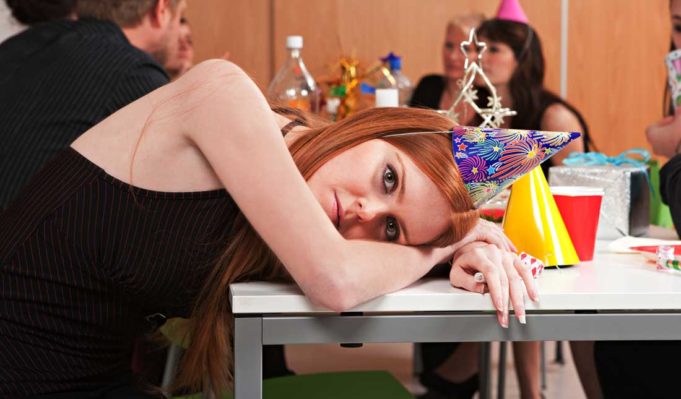I like to think that when someone looks at me, they don’t see anything amiss. I do not necessarily see myself as an anxious person, but I know that mixture of fear, panic, and stress intimately — as the patriarch from Jane Austen’s Pride & Prejudice might say, anxiety has been my constant companion.
No single experience is applicable to all people struggling with anxiety. Some act out in the moment. Others retreat. Some eat to excess, while others can’t stomach anything. Most of the time, I experience anxiety when going out of my comfort zone or in intimidating circumstances. Still, it’s during holidays that my anxiety is most consistent — and I’m probably not alone in this.
It started with Christmases. I was about 15 when I realized that gift-giving holidays were becoming harder to handle. Shortly after the unwrapping began, I’d become sad, my heart rate would increase, and I’d feel my eyes start to glaze over as I attempted to appear cheerful. Tears would sting my eyes, and to avoid anyone noticing I’d look down more and speak less.
This year was no exception, not long after my family gathered in my parents’ living room to unwrap their gifts, all smiling and laughing and enjoying themselves. The cue is unpredictable — perhaps it’s a passing thought or a memory of previous anxious holiday experiences — yet it is always sudden and fast-acting. I felt the familiar symptoms. Stomach churned. Heart rate elevated. Dread of the further unpleasantness to come. Awareness that while my siblings and parents are perfectly happy living in the moment, I am somehow alone.
I was determined to act as though everything was normal. I prepared tea in the kitchen, taking deep breaths and counting to 10, but that didn’t work. Then I gave in and talked to my mother. It wasn’t until now — when I was forced to put my problems into words – that I figured out what was wrong: I was pushing myself to be happy, and that pressure was making such happiness impossible.
New Year’s, Christmas, birthdays, holidays in general — on these occasions, we are not only expected to be happy. We are supposed to be. Every day, we read about people in our communities who are destitute, lonely, or struggling financially, and never do these stories strike us with more weight and sympathy than during the holidays. In one’s state of heightened “holiday spirit,” the misfortunes of others are even more significant, and they must be replaced with cheer and goodwill to all. This is not, in itself, a bad thing. However, this may help explain why someone with high expectations of her emotional condition might find holidays difficult.
Growing up and away from the adolescent euphoria holidays used to inspire, at some point I started pressuring myself to show how happy I was. I did not want my family to think I was ungrateful or insufficiently cheerful, and that self-imposed pressure is what ruined everything.
2016 was a dreadful year. Still, for me, it was a year of epiphanies. I learned that “your best” changes every time you try it and that there is no shame in doing what is right for you. So, if you would rather be alone on New Year’s Eve, unwrap gifts in the privacy of your bedroom, or avoid holiday dinners altogether, do what feels right. After all, there is enough judgment in the world. You mustn’t let it take away your spirit.












